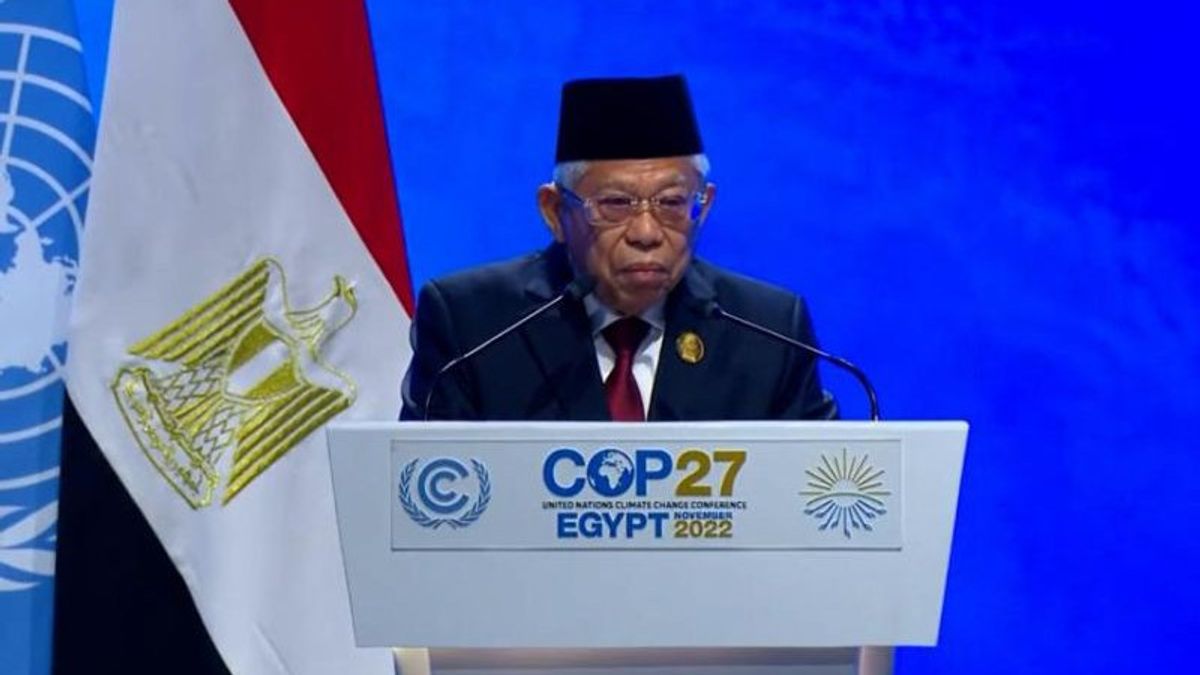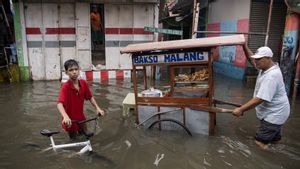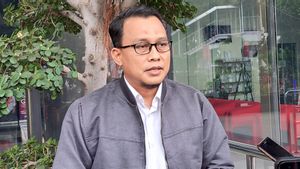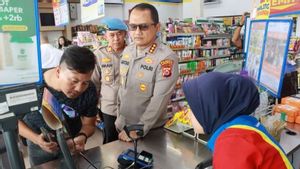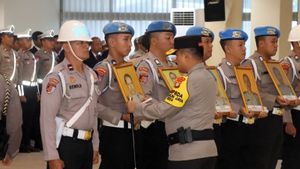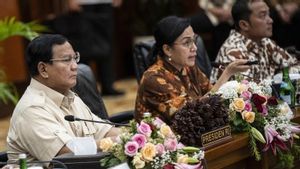JAKARTA - Vice President (Vice President) Ma'ruf Amin called for collective action to overcome the global crisis. This was conveyed in a speech at the 27th Conference of the Parties (COP27) in Egypt, Monday, November 7.
“In a crisis situation like this, there is no other choice but to cooperate. We must put forward the collaboration paradigm," said the Vice President in a press release, as quoted from Antara.
The vice president said that Indonesia had submitted the Enhanced Nationally Determined Contribution which contained an increase in Indonesia's emission reduction target to 31.89 percent with its own capabilities, and 43.20 percent with international support.
This increase is in line with significant developments in Indonesia's policies, including the expansion of nature conservation and restoration, the application of a carbon tax, achieving the 2030 Forestry and Other Land Use (FOLU) Net Sink, the development of an electric vehicle ecosystem, and the initiation of the B40 biodiesel program.
"To ensure funding for the energy transition, Indonesia has launched the Country Platform for Energy Transition Mechanism," he said.
However, the Vice President said, all these national efforts need to be accompanied by clear international support, including the creation of an effective and equitable carbon market, investment for energy transition, and funding for climate action.
"For this reason, COP27 must be used not only to advance ambition, but also implementation, including the fulfillment of support from developed countries to developing countries," he said.
The Vice President also emphasized that all countries must be part of the solution to overcome climate problems by contributing according to their respective capacities through the spirit of burden-sharing, not burden-shifting.
"Countries that are more capable must help and empower other countries," said the Vice President.
The Vice President said that as President of the G20 2022 and Chair of ASEAN in 2023, Indonesia continues to push for several important points of climate change and energy transition policies, including producing the Bali Compact to accelerate the energy transition to sustainable clean energy.
"Our vision as an ASEAN member country is to become a regional leader in accelerating the realization of climate action at a more tangible level," he said.
Through a bilateral partnership with Australia, according to the Vice President, Indonesia's aspiration is to lead efforts to reduce emissions by accelerating the transition to renewable energy.
“President Joko Widodo and Prime Minister Anthony Albanese have also agreed on a partnership for energy transition infrastructure and climate resilience. Through this initiative, Indonesia can become a leading source of clean energy in the Asia-Pacific region," he explained.
VOIR éGALEMENT:
Indonesia, continued the Vice President, has also proposed a long-term strategy that explores opportunities towards Net Zero Emission (NZE) in 2060 or faster by carrying out various cross-sectoral efforts, including accelerating the transition of renewable energy and initiatives to reduce industrial emissions across sectors and supply chains.
Therefore, said the Vice President, to overcome this climate problem, Indonesia continues to strive to reduce the rate of deforestation and land degradation through reforestation, replanting, and management of peatland water levels, including restoration of 756,000 hectares of mangrove areas.
"However, we recognize that the challenges are enormous, especially in maintaining a balance between reducing emissions with economic growth, equity, and building climate resilience," he said.
For this reason, the Vice President emphasized that climate adaptation efforts still have to be improved, including the challenges of food security, ecosystem resilience, water security, energy independence, health, urban and rural settlements, as well as coastal areas and small islands.
"The commitment of Indonesia and other developing countries must be supported by the commitment of financing and technology transfer from developed countries," he said.
With regard to funding for climate action, said the Vice President, Indonesia urges developed countries to at least double the provision of their collective climate finance for climate adaptation in developing countries.
According to him, it can be strengthened through a concrete roadmap, including funding arrangements on losses and damages that will be established under the United Nations Framework Convention on Climate Change (UNFCCC).
Furthermore, as an expert and practitioner of Islamic finance, said the Vice President, he also encouraged the world to explore Islamic finance as an alternative and innovative source of financing for green economy recovery and climate action.
The English, Chinese, Japanese, Arabic, and French versions are automatically generated by the AI. So there may still be inaccuracies in translating, please always see Indonesian as our main language. (system supported by DigitalSiber.id)
